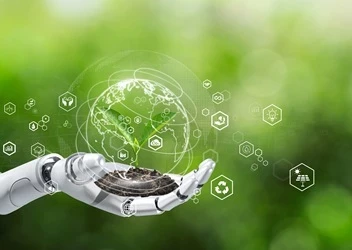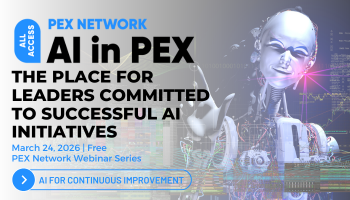Digital twins solve critical sustainability challenges in international competition
International students compete in the 2025 iTwin4Good Challenge as digital twin tools tackle sustainability issues
Add bookmark
An international competition brought together university student from the US, Germany, Canada, UK, Ireland and Brazil to apply digital twin technology to solve real-world sustainability challenges.
The 2025 iTwin4Good Challenge was organized by infrastructure engineering software company Bentley Systems and Enactus and challenged teams to use digital twins to address critical sustainability issues.
From tackling waste and renewable energy to reimagining resource use, the projects demonstrated how the next generation of leaders is combining entrepreneurial thinking with cutting-edge technology to drive meaningful global impact.
Join the PEX Network community

Don't miss any news, updates or insider tips from PEX Network by getting them delivered to your inbox. Sign up to our newsletter and join our community of experts.
Learn MoreWhat is digital twin technology?
Digital twins are dynamic, virtual models that continuously update with real-world data to reflect the condition, behavior and performance of a physical counterpart. Digital twins are transforming the way businesses manage operations, optimize efficiency and improve decision-making.
By creating real-time virtual replicas of physical assets, processes or systems, organizations gain insights into performance, predictive maintenance and overall operational health. Digital twins are increasingly being used across sectors such as manufacturing, healthcare and defense.
The PEX Report 2025/26 found that 12 percent of surveyed organizations currently apply digital twins and process simulation to support business transformation, with 13 percent planning to invest in digital twin tools in the next year.
Digital twins solve real-world challenges
Following a highly competitive showcase, the winning teams include:
- SiTESalvage from the UK and Ireland (winner). This team addressed one of the largest sources of global waste: construction and demolition. It developed a digital twin-powered platform that helps divert demolition materials away from landfills. By using iModels to provide visibility into upcoming demolition projects, the platform showed how stakeholders could identify, plan for and repurpose available materials, ultimately driving more effective reuse and reducing the industry’s environmental footprint.
- Basola from Germany (runner-up). This team focused on the pressing challenge of plastic waste by creating a solar-powered pyrolysis reactor that transforms discarded plastics into usable fuel. Leveraging iTwin technology alongside IoT sensors, the team designed a solution that not only converts waste into a resource but also actively monitors the reactor’s performance to enhance safety and simplify maintenance.
- EcoTwins from Canada (second runner-up). This team tackled the land-use challenges associated with expanding renewable energy projects. The solution explored how abandoned gold mine sites can be repurposed to host solar and wind energy developments. By integrating technical, social and environmental indicators into assessments, the team created a framework for evaluating the energy potential of these sites while also addressing possible conflicts around land use.
Team SiTESalvage will go on to represent its project at the Enactus World Cup 2025 in Bangkok.
Creating lasting impact through digital twin innovation
“At Bentley, we are inspired by how this year’s student teams applied digital twin technology and innovative thinking to real-world challenges,” said Chris Bradshaw, chief sustainability and education officer at Bentley Systems. “SiTESalvage, Basola, EcoTwins and the other global student competitors demonstrated the transformative potential of combining creativity with digital solutions to drive more sustainable infrastructure outcomes for communities and the planet.”
George Tsiatis, president and CEO at Enactus Global and Resolution Project, added: “These projects highlight the ingenuity and passion of young leaders who are proving that business innovation can be a powerful force for good. By tackling global issues like waste, energy and sustainability with cutting-edge technologies, these students are showing what it means to create lasting impact.”
All Access: AI in Process Excellence 2026

Don’t get left behind. Join us at All Access: AI in Process Excellence to learn from leading experts, thought leaders, and practitioners who are on the ground experimenting, researching, and learning how to best use AI. They will share their secrets with you for free. And you’ll have the opportunity to network with fellow professionals as we navigate this new world. Register now to save your spot.
Register Now






